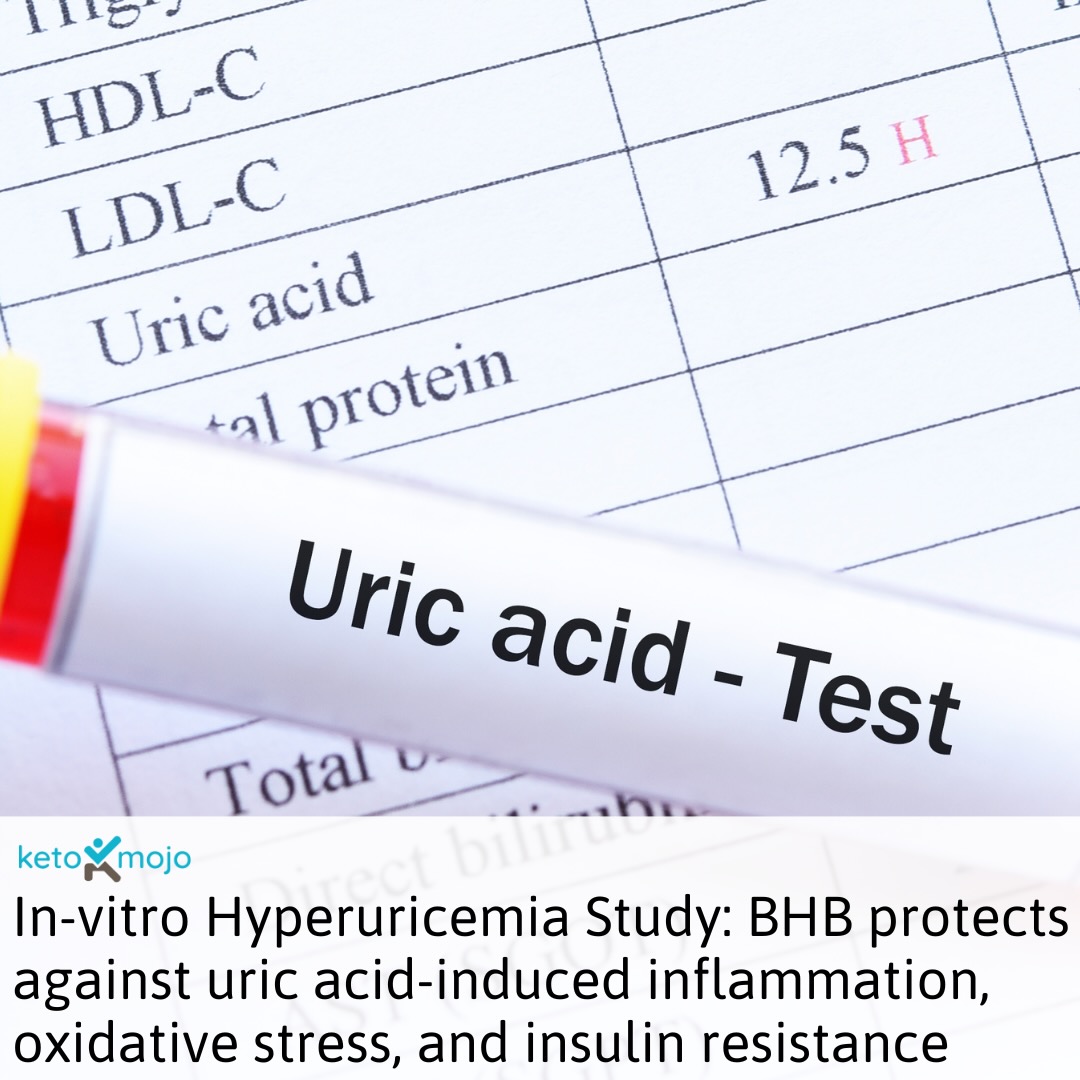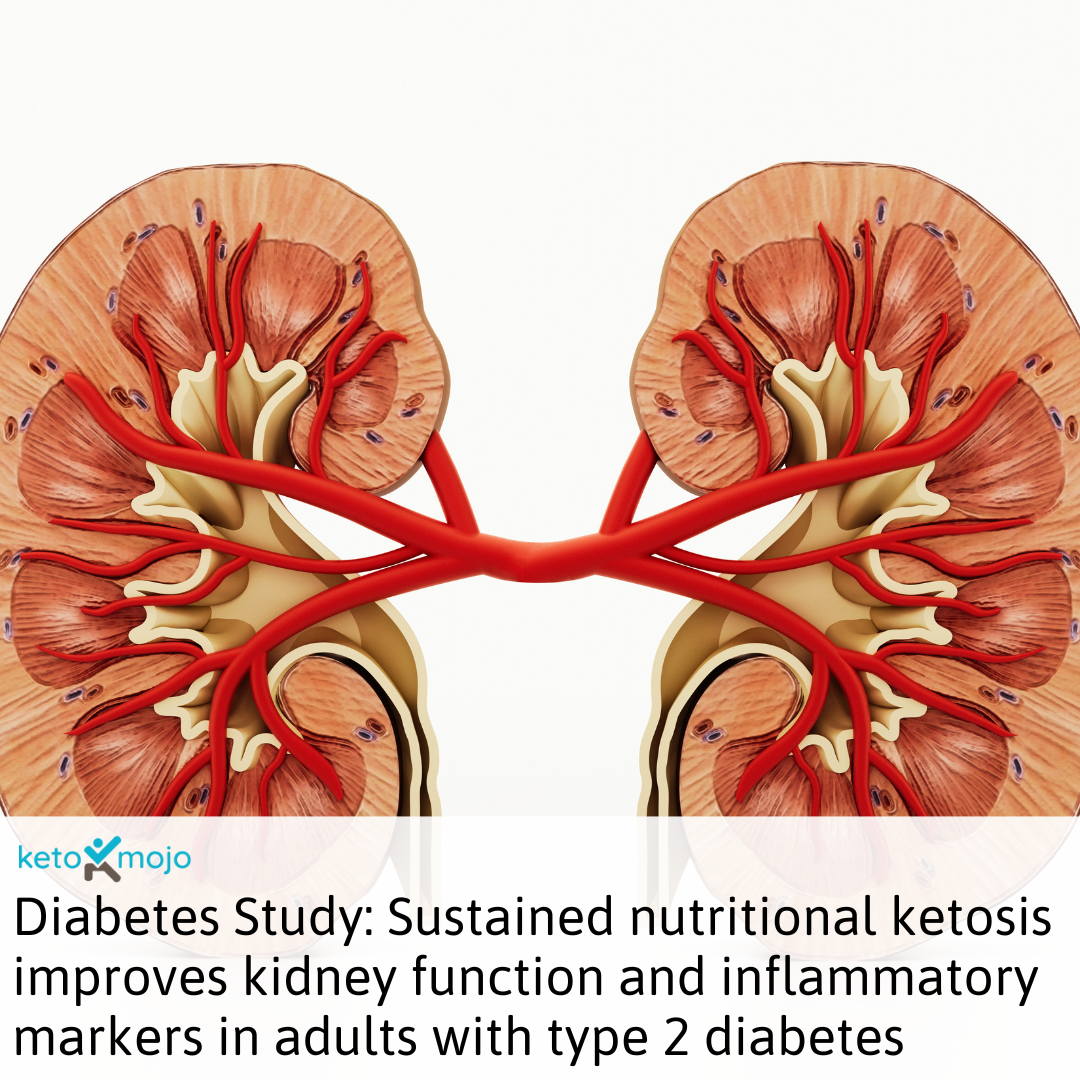General Health, Metabolic Syndrome
The Role of Beta-Hydroxybutyrate in Mitigating the Inflammatory and Metabolic Consequences of Uric Acid

Uric acid (UA) promotes inflammation primarily by activating the NLRP3 inflammasome. Elevated UA levels (hyperuricemia) are associated with gout, cardiovascular disease, and metabolic disorders. In contrast, the ketone body β-hydroxybutyrate (BHB) has demonstrated anti-inflammatory properties. This study explored whether BHB can mitigate the harmful effects of UA on inflammation, oxidative stress, and insulin signaling.
The effects of uric acid exposure alone or with BHB co-treatment were investigated in a murine muscle cell model. Cell viability, cytokine levels, mitochondrial function, oxidative stress, and insulin signaling were measured to determine whether BHB could mitigate uric acid-induced damage.
Key findings
- Reduced inflammation: Uric acid increased pro-inflammatory cytokines, which BHB significantly suppressed.
- Improved cell survival: Uric acid decreased muscle cell viability, but BHB restored survival rates.
- Mitochondrial protection: Uric acid impaired mitochondrial function and increased oxidative stress, while BHB reversed these effects.
- Restored insulin sensitivity: Uric acid disrupted insulin signaling, but BHB improved insulin response in muscle cells.
Conclusions
These findings suggest that BHB may protect against uric acid-driven metabolic dysfunction by targeting inflammation, oxidative stress, and insulin resistance. BHB offers potential therapeutic applications in hyperuricemia, metabolic syndrome, and gout, but further studies are needed to validate this clinical potential.






